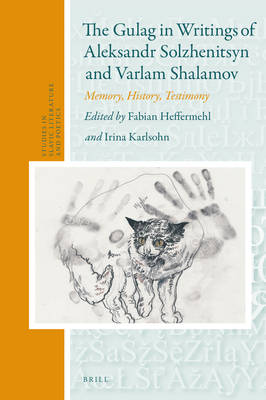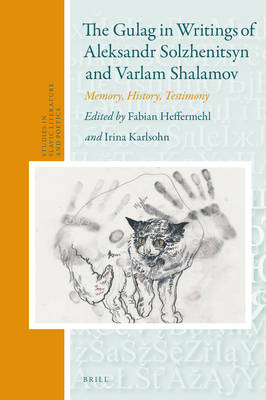
- Retrait gratuit dans votre magasin Club
- 7.000.000 titres dans notre catalogue
- Payer en toute sécurité
- Toujours un magasin près de chez vous
- Retrait gratuit dans votre magasin Club
- 7.000.0000 titres dans notre catalogue
- Payer en toute sécurité
- Toujours un magasin près de chez vous
The Gulag in Writings of Aleksandr Solzhenitsyn and Varlam Shalamov
Memory, History, Testimony
204,95 €
+ 409 points
Description
Alexander Solzhenitsyn and Varlam Shalamov are two of the best-known Gulag writers. After a short period of personal acquaintance, their lives and views on literature took different paths. Solzhenitsyn did not see a literary program in Shalamov's works, which he describes as "a result of exhaustion after years of hard labour in the camp". By understanding the text as a "result", Solzhenitsyn critically touched on a concept of evidence, which Shalamov several times emphasized as important to his own works. According to Shalamov, instead of the text being a re-presentation, it should be an extract from or substitute for the real or the factual, by which his Gulag experience became present once again. Concepts such as "document", "thing" and "fact" became important for Shalamov's self-identification as a modernist. At the same time, Solzhenitsyn, viewing his own task as one of restoring historical experiences of the Russian people and trying "to explain the slow course of history and what sort of one it has been", assumed the dual role of writer and historian, which inevitably raises the question of what characterizes the borders between fact and fiction in his works. It also raises question about dichotomies of historical and fictional truth.
Contributors: Andrea Gullotta, Fabian Heffermehl, Luba Jurgenson, Irina Karlsohn, Josefina Lundblad-Janjic, Elena Mikhailik, Michael A. Nicholson, Irina Sandomirskaja, Ulrich Schmid, Franziska Thun-Hohenstein, Leona Toker.
Contributors: Andrea Gullotta, Fabian Heffermehl, Luba Jurgenson, Irina Karlsohn, Josefina Lundblad-Janjic, Elena Mikhailik, Michael A. Nicholson, Irina Sandomirskaja, Ulrich Schmid, Franziska Thun-Hohenstein, Leona Toker.
Spécifications
Parties prenantes
- Editeur:
Contenu
- Nombre de pages :
- 308
- Langue:
- Anglais
- Collection :
- Tome:
- n° 63
Caractéristiques
- EAN:
- 9789004468450
- Date de parution :
- 19-08-21
- Format:
- Livre relié
- Format numérique:
- Genaaid
- Dimensions :
- 155 mm x 235 mm
- Poids :
- 639 g

Les avis
Nous publions uniquement les avis qui respectent les conditions requises. Consultez nos conditions pour les avis.





